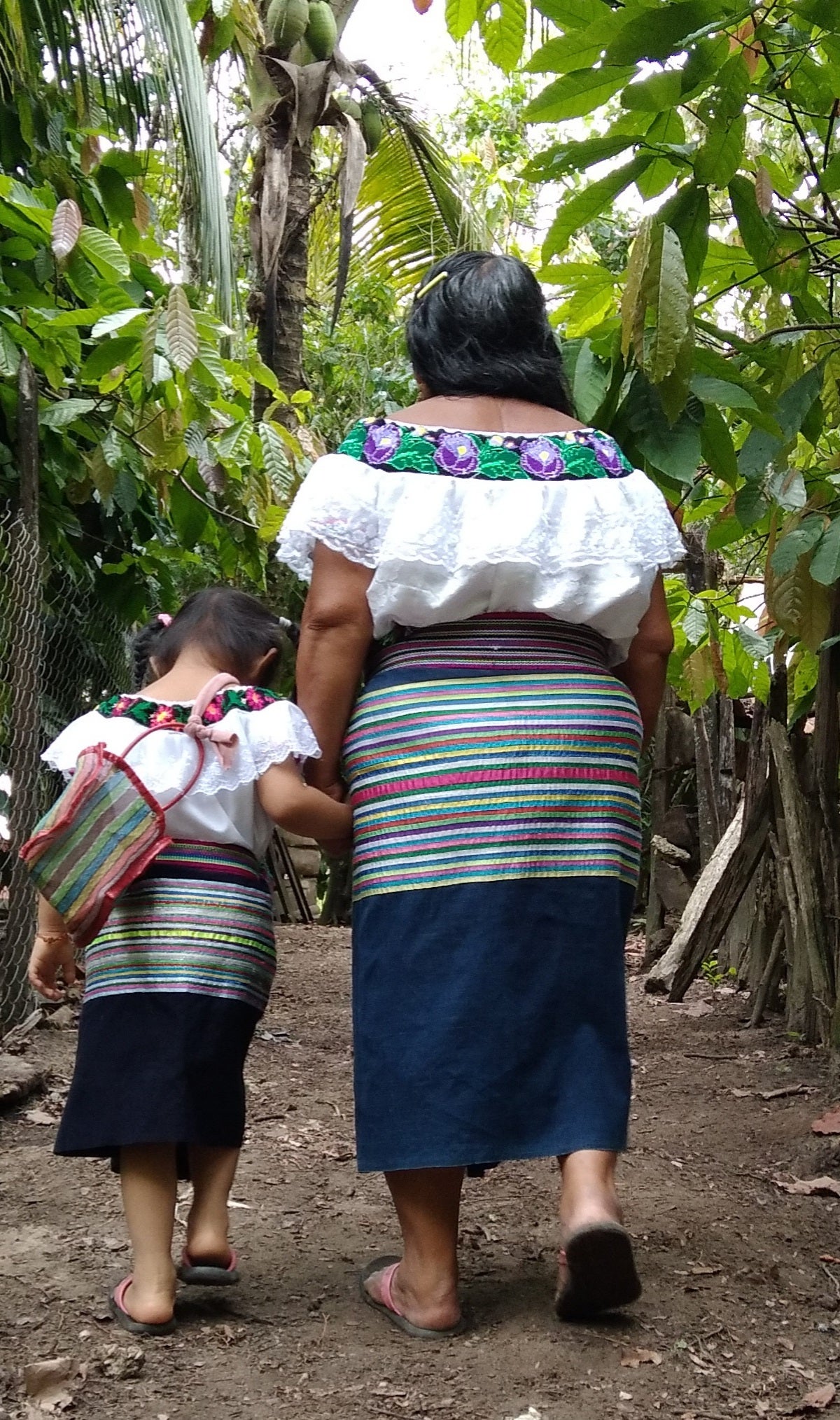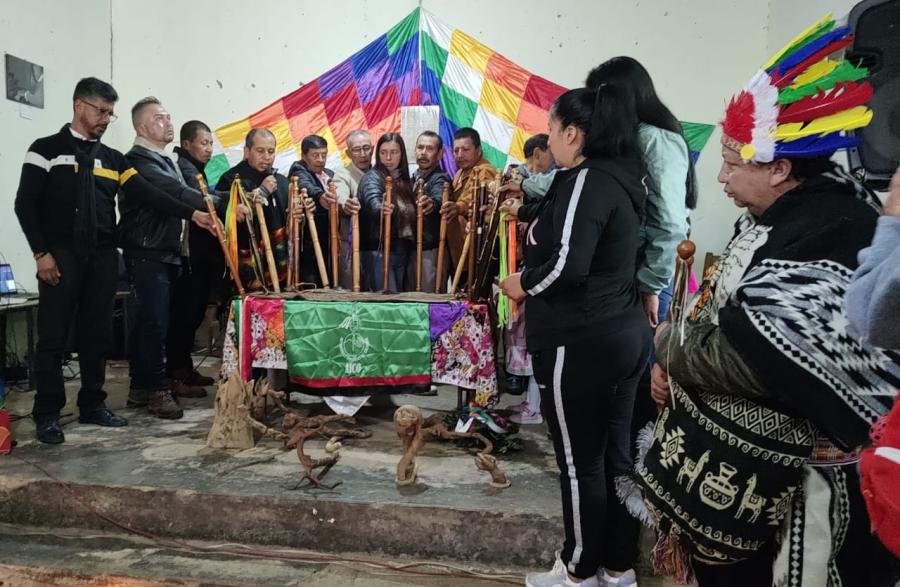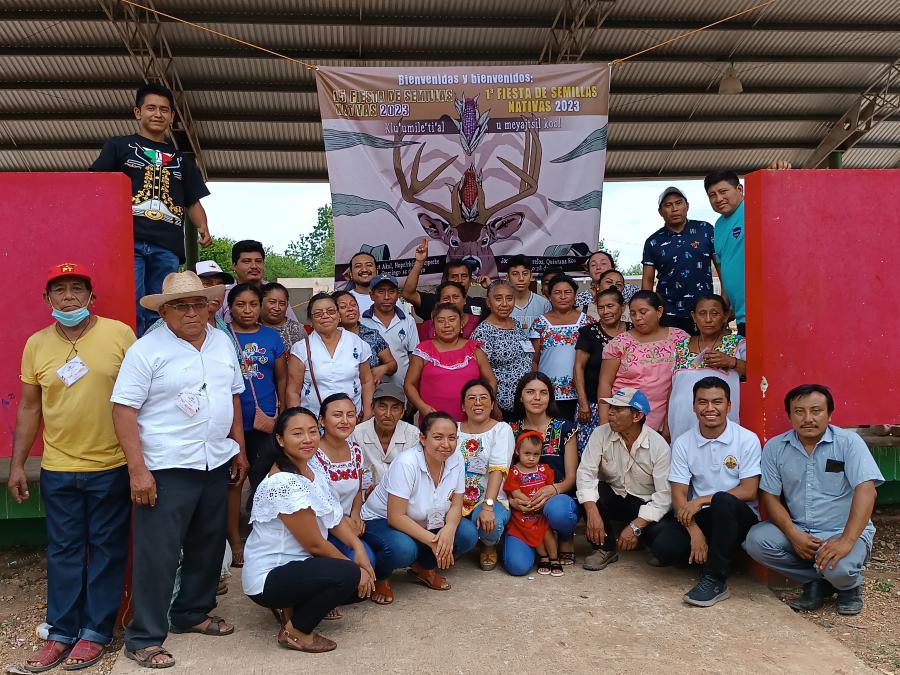
By Amalia Pérez (Tzeltal)
Catalina has been a midwife since she was 15 years old, helping hundreds of women give birth. She is originally from the community of Samaria, in the municipality of Ocosingo, Chiapas. She was born on September 16, 1951. For Catalina, the midwife's work is to help and contribute to improving other people's lives.
Catalina grew up with her grandmother, who was a midwife both in and outside of the community and gave her all of her knowledge. “I grew up with my grandma because my parents moved to another community looking for a place to settle and cultivate,” she remembers. She had a happy childhood as she lived surrounded by nature and community life. Part of this happiness was because her grandmother instilled in her the interest in being a midwife to serve and defend women’s lives. Instead of sending her to school, her family educated her based on their community’s traditional values.
Getting started in midwifery
At the age of 14, Catalina got married. At that time, women did not enjoy a prolonged adolescence, as it was crucial for them to learn housework to start a new family. One of the moments that marked her life was her grandmother's death. “This experience motivated me to use the knowledge that she had taught me,” she says.
Catalina's work as a midwife began from a personal experience. At 15, she gave birth to her first child alone because nobody was available to help her. “I had my baby completely alone. My neighbor arrived after the baby was already in my arms,” she recalls.
Catalina assumed the responsibility of being a mother and wife from a very young age. When she started her work as a midwife, she earned respect and admiration in her community and farther away. For Catalina, helping with childbirth is to form lifelong ties with another family. She consistently receives little tokens of appreciation, not in the form of money, but rather something from the family’s harvest.
“I have already seen the births of different generations. I have received so many grandchildren in my hands, tenderly giving them their first gesture of love and welcoming them to this world,” she says.
Her work and her fight
In her first years of working alongside women, Catalina observed the painful situation they faced during pregnancy, reflected in the numerous deaths of mothers and their newborn babies.

Beyond uncovering the reality facing women in Indigenous communities, Catalina started to question the machismo mentality and practices in the conservative culture of her community. In 2000, she started a mentorship and training program for women in her community, promoting the care of backyard animals, balanced nutrition through organic farming, and proper birth control planning.
“She cared for me in my house, and she helps other women”
Maria Morales Cruz is a Tzeltal woman from the community of Ojo de Agua. She has four children, each born with Catalina’s help. She said, “I thank Catalina because she helped in my house and helps women. She doesn’t do it for money, but for the sake of helping.”
For Maria, going to a hospital is very expensive. There is also a risk of not receiving proper care and being subjected to Cesarean birth or unwanted sterilization surgery. Maria says she is grateful for Catalina’s experience and work because she helped her with her pregnancies, deliveries, and deciding how many children to have.
Challenges in her work as a midwife
Not everything has been easy for Catalina. She has faced challenges, including language barriers and working with men. On occasion, she has been the victim of discrimination for not being able to communicate with people with different medical training.
Still, her work and words have given confidence to communities and have served as a bridge allowing other women to join local movements. Beyond her work as a midwife, Catalina tends an organic and diverse garden, cares for animals and plants, and produces natural medicines.
Midwifery is not as valued today as it once was, but it comes from ancestral tradition. Midwives are women surrounded by love and community respect. The community thanks Catalina for her work, and as proof of their appreciation, families bring her fruits, corn, beans, and animal products.
Today, at the age of 69, Catalina has set an example as a constant fighter. She is a beloved woman respected by all, and known as everyone’s mother and grandmother. She is satisfied with her work and family. Her greatest dream is to leave her legacy to other women to continue the work of traditional midwifery.
--Amalia Pérez (Tzeltal) was born and lives in Predio el Capulín, in Palenque Chiapas, Mexico. She is an odontologist and activist for the rights of the Indigenous Peoples and has worked with women to promote their rights on health and land. Perez was a participant in the project “Training Indigenous Women to Defend their Human Rights,” a series of workshops on communication and human rights held between March and June 2021 by Cultural Survival and the Alumni Engagement Innovation Fund. The topics of the trainings included healing, information, and documentation of individual and collective human rights. Different media were used to document and communicate human rights violations, including writing, photography, video, radio, and social media. This article is the result of Pérez's final training project.



